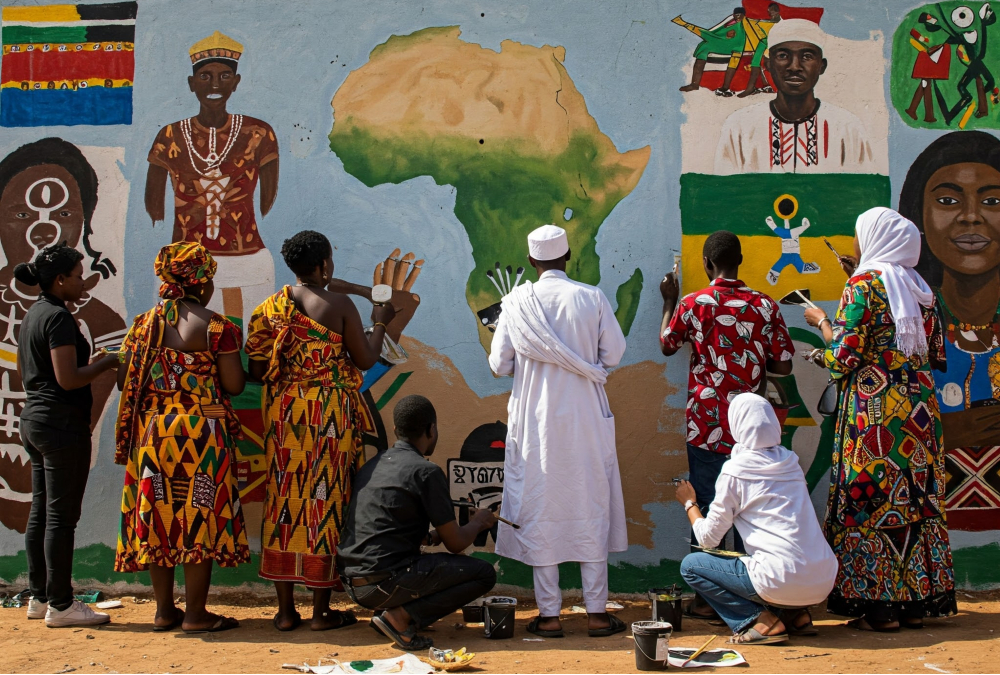Alorh’s eye on the Motherland
Regional Integration: The Key to Africa’s Sustainable Future


By Mary Alorh
Regional integration is not just a goal – it is a necessity for both individual subregions and the broader African continent. By fostering economic growth, encouraging cooperation, and promoting unity, regional integration lays the foundation for sustainable development and lasting progress.
In a continent often challenged by polarization, violence, terrorism, and conflicts, disunity only deepens these struggles. To break this cycle, Africans must prioritize building and strengthening unity as a cornerstone of their collective advancement.
As an old African proverb wisely reminds us, “If you pick one broomstick, it can break, but a bundle of broomsticks can never be broken.” This timeless wisdom underscores the power of unity and collective effort.
Alone, we are vulnerable; together, we are resilient. It is this spirit of solidarity that will drive Africa toward a brighter future.
Strengthening West Africa Through Unity
A significant step toward realizing this vision was Ghana’s Golden Jubilee launch of the Economic Community of West African States (ECOWAS), which notably included the Sahel states. This move marked a pivotal moment in fostering regional unity and cooperation, paving the way for a stronger, more cohesive West African community.
However, the journey has not been without its challenges. Just two years ago, ECOWAS imposed sanctions on Mali, Niger, and Burkina Faso – three nations collectively known as the Sahel states.
These sanctions not only exacerbated their already fragile economies but also fueled further instability and violence in the region. The unintended consequence? A growing divide within ECOWAS, culminating in the formation of the Alliance of Sahel States (AES).
This fragmentation weakened the subregion’s economic prospects and undermined efforts toward collective progress.
The Sahel States: A Vital Piece of the Puzzle
The Sahel States – Burkina Faso, Mali, and Niger – are home to approximately 72 million people, representing roughly one-fifth of ECOWAS’s total population. This demographic is not just a statistic; it is a vital component for the success of the African Continental Free Trade Area (AfCFTA).
With their youthful populations and untapped economic potential, the Sahel States hold immense promise for driving growth and development across the continent.
The AfCFTA, the world’s largest free trade area by the number of participating countries, territory, and population, brings together 55 African Union member states and eight Regional Economic Communities. Its mission is ambitious yet transformative: to create a single market that facilitates seamless trade, boosts economic activity, and improves the quality of life for millions of Africans.
For this vision to succeed, however, stability and security must be prioritized.
Stability and Security: The Foundation for Success
Securing safe and stable communities is essential to unlocking the full potential of the AfCFTA. Without peace and security, economic growth becomes unsustainable, and development stalls.
The inclusion of the Sahel states in regional initiatives like ECOWAS is therefore not just symbolic – it is strategic. By addressing the root causes of conflict and fostering collaboration, Africa can transform its challenges into opportunities for shared prosperity.
The path forward requires bold leadership, inclusive policies, and unwavering commitment from all stakeholders. It demands that we view regional integration not as an abstract concept but as a tangible solution to some of our most pressing challenges.
As Africa continues to rise, let us remember that our strength lies in our unity. Together, we can build a future defined not by division, but by resilience, innovation, and collective triumph.
In the words of another African adage, “When spider webs unite, they can tie up a lion.” Let us weave our strengths together, for in unity lies Africa’s greatest hope for a prosperous tomorrow.
Mary Alorh is Director of Administration at DefSEC Analytics Africa Ltd., and is an expert in Gender, Youth, and Peace & Security initiatives in West Africa.

